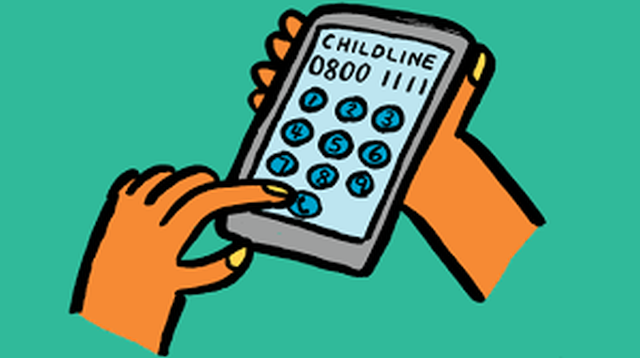- During the months of July and August, there is an increase in contacts to the NSPCC’s Helpline about children being left home alone.
- Neglect was the top concern in Helpline sessions in 2022/23, with 11,428 contacts. Of these, 4,717 mentioned a child being left alone or unsupervised.
- The NSPCC would not recommend leaving a child under 12 years old home alone, particularly for longer periods of time.
The NSPCC is urging parents to think carefully about whether their child is ready to be left home alone over the summer holidays.
Last July and August there was a spike in contacts to the charity’s Helpline from adults concerned about a child being left unsupervised. From April 2022 to March 2023 there were 11,428 contacts to the Helpline about neglect, where more than 40% (4,717) directly mentioned concerns around a child being left home alone. The number of contacts about children being left unsupervised increased during the summer holidays, with 1,015 contacts to the Helpline about this issue over July and August in 2022.
For working parents July and August can be particularly difficult as they are forced to try and balance the competing pressures of work and childcare. For some, these challenges are likely to be even more acute this year with the cost-of-living crisis putting additional strain on family finances, forcing them to work even more hours.
There is not a legal age limit for leaving children alone, but the NSPCC and Government guidance encourages parents to use their judgement before leaving any child home alone – especially those under 12 years old.
Infants and young children aged 0-3 should never be left alone – even for a few minutes. This includes visiting next door or leaving children in your car while you run into a shop. For older children there is no single rule for all, especially if a child has complex needs. It is up to parents and carers to decide when and where it is safe and appropriate for their child to be left unsupervised.
A child who doesn’t feel comfortable should never be home alone, and for those who do it is still vital they are left with contact numbers for a parent or carer and another trusted adult in case they ever feel unsafe, uncomfortable or unsure about something.
Should leaving a child alone be the only option for an adult, then the NSPCC’s website has tips for parents to help ensure the young person feels safe. This includes checking in with them regularly and practicing what to do in an emergency, should one happen while you are away.
Childline often hears from children who have been left home alone for extended periods with minimal communication. Long periods of being left alone can lead to children feeling afraid, and to serious cases of neglect.
One girl aged 15 told Childline: “Mum has left us alone again; she keeps doing this. She just disappears for days, won’t answer anyone’s calls or texts. I’m so frustrated and angry with her. My brother is only 6, I can look after him myself, but I shouldn’t have to. I feel like no one is ever looking after ME.”
Kam Thandi, Head of the NSPCC’s Helpline said: “Many parents struggle with finding the right time to leave their child home alone for the first time. Every child is different, and the right time will differ for every family.”
“It’s crucial that children are involved in the conversation about when they may be ready for this and what they are comfortable with. Our Helpline will continue to support parents who are unsure about whether their child can be left home alone and for other adults who are worried that an unsupervised child may be at risk.”
With renewed support from Blakemore Retail, which owns 262 SPAR stores across England and Wales, the NSPCC is running a ‘Home or Out Alone’ campaign, promoting a quiz and advice, designed to help parents and carers make the right decisions about leaving their children at home safely or letting them leave the house unsupervised.
Childline is available for young people via the phone on 0800 1111 and online where there is a 121 chat on the Childline website. You can find more information and advice on leaving children home alone on the NSPCC website.

|
| Help keep news FREE for our readersSupporting your local community newspaper/online news outlet is crucial now more than ever. If you believe in independent journalism,then consider making a valuable contribution by making a one-time or monthly donation. We operate in rural areas where providing unbiased news can be challenging. |

























